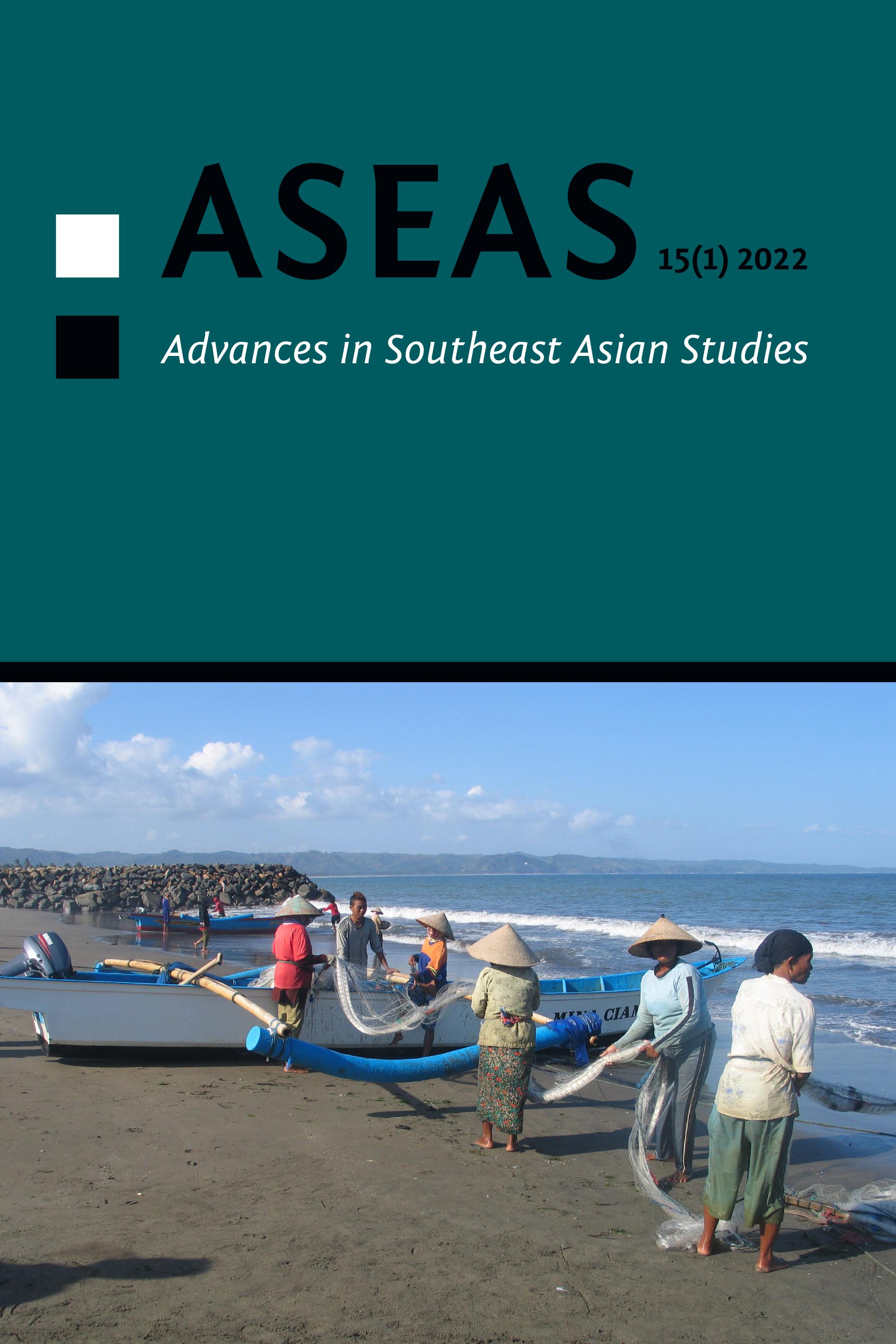“Smart is not Equal to Technology”
An Interview with Suhono Harso Supangkat on the Emergence and Development of Smart Cities in Indonesia
DOI:
https://doi.org/10.14764/10.ASEAS-0055Keywords:
urban development, urban governance, smart cities, information technology, IndonesiaAbstract
In 2017, the Indonesian government launched the ‘100 Smart Cities’ initiative to mark the rise of smart city concepts in urban development. Rather than replicating what has been done by developed countries, Indonesia has experienced somewhat different pathways in developing its smart cities. This piece records an expert interview with Suhono Harso Supangkat, a professor of information technology at the Bandung Institute of Technology (ITB) and one of the pioneers of Indonesia’s smart cities program. He leads the Smart City and Community Innovation Center (SCCIC), which facilitates cities’ implementations of smart solutions to urban problems. He advises and assists many government agencies and industries, especially on information technology regulations and governance. He has also developed the Indonesian Smart City Rating (RKCI), which aims to survey and map Indonesian smart city development; it has been published every two years since 2015. This interview was conducted in Indonesian on 10 September 2020 via telephone call. For the purposes of this paper, the interview transcript was translated by the author. The interview relates to the emergence, prospects, and challenges of Indonesian smart cities and their development.
References
Badami. (2021). Badami Food Sharing. https://smartfood.badami.id/
Davy, J. (2019). What lies ahead of Indonesia’s 100 smart cities movement? https://www.thejakartapost.com/life/2019/12/05/what-lies-ahead-of-indonesias-100-smart-cities-movement.html
Farda, M., & Balijepalli, C. (2018). Exploring the effectiveness of demand management policy in reducing traffic congestion and environmental pollution: Car-free day and odd-even plate measures for Bandung city in Indonesia. Case Studies on Transport Policy, 6(4), 577-590.
Hargittai, E. (2010). Digital Na(t)ives? Variation in internet skills and uses among members of the “Net Generation”. Sociological Inquiry, 80(1), 92-113.
Juwono, V., & Cindra, E. S. (2020). The politics of advancing governance reform and curbing corruption in the metropolitan city. In K. Hartley, G. Kuecker, M. Waschack, J. ji Woo, & C. C. R. Pua (Eds.), Governing cities (pp. 46-63). Routledge.
Kompas. (2018). “Command center”, langkah awal menuju kota pintar [Command center, the first step towards smart city]. https://properti.kompas.com/read/2018/11/13/115111221/command-center-langkah-awal-menuju-kota-pintar?page=all
Ministry of Communication and Informatics. (2018). Langkah menuju “100 smart city” [Steps towards 100 smart city]. https://kominfo.go.id/content/detail/11656/langkah-menuju-100-smart-city/0/sorotan_media
MUFPP Secretariat. (2021). Milan Pact Awards 2020. https://www.milanurbanfoodpolicypact.org/milan-pact-awards/milan-pact-awards-2020/b
Offenhuber, D. (2019). The platform and the bricoleur—Improvisation and smart city initiatives in Indonesia. Environment and Planning B: Urban Analytics and City Science, 46(8), 1565-1580.
Pilsudski, T., Tan, S. Y., Tunas, D., Clavier, F., Stokols, A., & Taeihagh, A. (2018). The shift towards smart cities in Southeast Asian cities: The role of urban governance. Paper presented at the 55th International Society of City and Regional Planners World Planning Congress Jakarta-Bogor, Indonesia. https://www.isocarp-institute.org/wp-content/uploads/2020/08/GOV_The-Shift-Towards-Smart-Cities-in-Southeast-Asian-Cities.pdf
Prasetyo, P. S., Gunawan, T., Rachmawati, T., Hermawan, D., & Gunawan, E. (2019). Bandung food smart city: Responsible production and comsumption for the sustainability of the earth. Faculty of Social and Political Sciences, Parahyangan University.
Prasetyo, W. (2019). Society 5.0 milenial generation: Digital talents formula of global open government and smart cities. Jurnal Riset Akuntansi Dan Bisnis Airlangga, 4(2), 623-643.
Pratama, A. B., & Imawan, S. A. (2020). Bureaucratic readiness for smart city inititiaves: a mini study in Yogyakarta City, Indonesia. In Y. Joo & T. Tan (Eds.), Smart cities in Asia governing development in the era of hyper-connectivity (pp. 148-161). Edward Elgar Publishing Limited.
Statistics Indonesia. (2018). Proyeksi penduduk Indonesia 2015-2045 hasil SUPAS 2015-2045. No. Publikasi: 33710.1904. Jakarta.
Supangkat, S. H. (2015). Smart city development in Indonesia and Asian-African nations. IECE, 78. https://www.ieice.org/eng/activities/ieice_global_plaza/2015/78.html
Supangkat, S. H., Arman, A. A., Nugraha, R. A., & Fatimah, Y. A. (2018). The implementation of Garuda Smart City framework for smart city readiness mapping in Indonesia. Journal of Asia-Pacific Studies, 32(4), 169-176.
Tapsell, R. (2020). Social media and elections in Southeast Asia: The emergence of subversive, underground campaigning. Asian Studies Review, 45(1), 117-134.
Tay, K., Supangkat, S. H., Cornelius, G., & Arman, A. A. (2018). The SMART initiative and the Garuda Smart City framework for the development of smart cities. In 2018 International Conference on ICT for Smart Society (ICISS) (pp. 1-10). IEEE. https://doi.org/10.1109/ICTSS.2018.8549961
Tempo.co. (2019). Traffic jam in Greater Jakarta costs Rp100tn: JUTPI. https://en.tempo.co/read/1264081/traffic-jam-in-greater-jakarta-costs-rp100tn-jutpi
The Jakarta Post. (2019). We cannot continue like this: Jokowi on Jakarta’s traffic. https://www.thejakartapost.com/news/2019/01/09/we-cannot-continue-like-this-jokowi-on-jakartas-traffic.html
Utomo, W. P., & Noormega, R. (2020). Indonesia Millennial Report. IDN Research Institute (Vol. 01). https://www.idntimes.com/indonesiamillennialreport2019
Zulham, A. F. (2020). Political strategy of Joko Widodo in overcoming oligarchy politics in Indonesia. In Y. W. Santoso, F. S. Azzahra, & E. N. Toreh (Eds.), Indonesia’s path toward middlepowership (pp. 259-271). Airlangga University Press.
Downloads
Published
Issue
Section
License
Copyright (c) 2021 Society for South-East Asian Studies (SEAS)

This work is licensed under a Creative Commons Attribution-NonCommercial-NoDerivatives 4.0 International License.
For all articles published in ASEAS before December 2014 and after July 2022, copyright is retained by the authors. For articles published between January 2015 and June 2022, the Society for South-East Asian Studies (SEAS) is the copyright holder. Articles published in ASEAS before December 2019 are licensed under the following Creative Commons License: Attribution-NonCommercial-NoDerivs 3.0 Unported. Articles published after that date are licensed under the following Creative Commons License: Attribution-NonCommercial-NoDerivs 4.0 International. In both cases, this means that everybody is free to share (to copy, to distribute, and to transmit the work) under the following conditions:
-
Attribution — You must give appropriate credit, provide a link to the license, and indicate if changes were made. You may do so in any reasonable manner, but not in any way that suggests the licensor endorses you or your use.
-
NonCommercial — You may not use the material for commercial purposes.
-
NoDerivatives — If you remix, transform, or build upon the material, you may not distribute the modified material.


